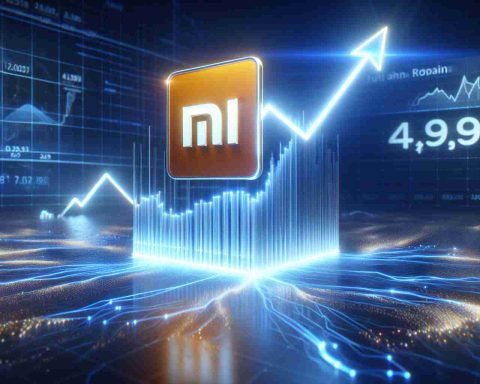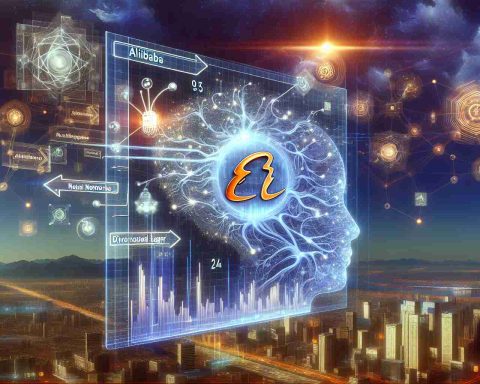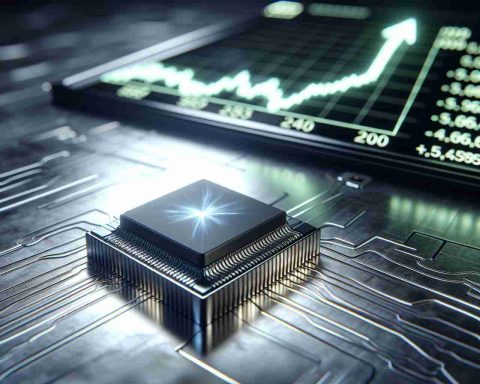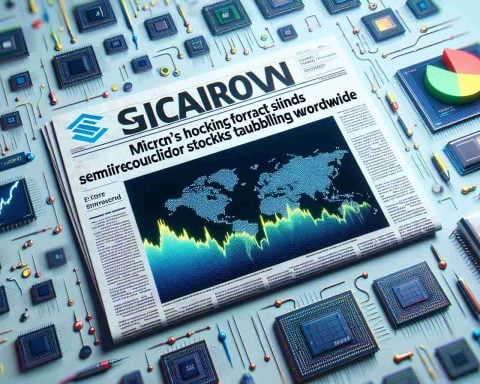In a groundbreaking move that might redefine the automotive industry, Tesla is steering towards an AI-driven future that could potentially transform how we use our smartphones with cars. Tesla, listed on the Nasdaq as TSLA, has always been at the vanguard of automotive innovation. The company now plans to integrate advanced AI systems that will further bridge the gap between smartphones and vehicles.
Elon Musk’s ambitious new project involves equipping Tesla’s electric vehicles with next-generation AI capabilities that allow seamless smartphone integration. This initiative is expected to enhance the autonomous driving experience by offering improved navigation, real-time traffic analysis, and personalized user experiences based on individual smartphone preferences. The key here is leveraging AI to create a symbiotic relationship between a smartphone and a car, transforming how both devices are utilized.
Initially, the focus will be on creating a user interface (UI) that incorporates AI to optimize vehicle performance and driver efficiency. By connecting Tesla vehicles directly with smartphones, users can anticipate smarter predictive maintenance alerts, enhanced security features, and an unmatched level of personalization. The AI systems will analyze data collected from a user’s smartphone, learning their habits and adapting the vehicle’s responses accordingly.
The move could potentially make Tesla’s vehicles a central hub for digital life, reimagining them not just as transportation devices but as extensions of our connected lives. As Tesla pioneers this novel approach, the potential for innovation is immense, heralding an enticing future for smartphone and vehicle integration.
Tesla’s AI-Driven Approach: Unleashing the Future of Smartphone-Car Integration
In an era where technological convergence is reshaping industries, Tesla is once again at the forefront of innovation with its AI-driven initiative to harmonize smartphones and vehicles. With Tesla’s unique vision, the electric vehicle and tech giant is setting new standards for how these ubiquitous devices can seamlessly interconnect.
Features of Tesla’s AI Integration
Tesla’s new AI capabilities promise to redefine the user-vehicle interface, leveraging data insights and machine learning for an enhanced driving experience. This integration offers:
– Advanced Navigation and Real-Time Insights: Using AI to analyze traffic data and suggest optimized routes, ensuring efficiency and safety on the road.
– Smart Predictive Maintenance: By integrating smartphones, Tesla can provide timely maintenance alerts, anticipating potential issues based on driving patterns and vehicle diagnostics.
– Security Enhancements: AI-driven facial recognition and biometric features for added security, utilizing smartphone-integrated technology.
Pros and Cons of Smartphone Integration in Vehicles
Pros:
– Enhanced personalization aligning vehicle settings with user preferences.
– Continuous updates and improvement possibilities due to data-driven insights.
– Potential reduction in operational costs with predictive maintenance.
Cons:
– Privacy concerns with increased data collection.
– Initial learning curve for users adapting to AI-driven interfaces.
– Potential over-reliance on technology, leading to less engagement with traditional driving skills.
Market Insights and Trends
Tesla’s move to integrate AI with smartphones reflects broader trends towards creating interconnected ecosystems. The initiative not only positions Tesla as a leader in the automotive tech industry but also highlights the increasing demand for multi-device ecosystems in consumers’ daily lives. This convergence of technology points to a future where vehicles serve as central hubs for our digital identities, blending transportation with connectivity.
Security Aspects and Concerns
As AI becomes more prominent in vehicles, security is paramount. Tesla is focusing on developing robust security protocols to ensure the safety of user data and prevent unauthorized access. Addressing cybersecurity risks is crucial to maintaining consumer trust and ensuring the successful implementation of these technologies.
Looking Ahead: Predictions for the Future
As Tesla continues to innovate, we can expect even more integrated functionalities between smartphones and vehicles, leading to enhanced user experiences and a shift towards fully autonomous driving. This evolution could drastically reduce traffic accidents caused by human error and lead to more sustainable urban mobility solutions.
By embracing AI and smartphone integration, Tesla not only enhances its competitive edge but also sets the stage for future advancements in smart transportation systems. The journey towards a fully connected, AI-driven automotive world is only just beginning, with Tesla at the helm. Visit Tesla for more information on their cutting-edge innovations.


















